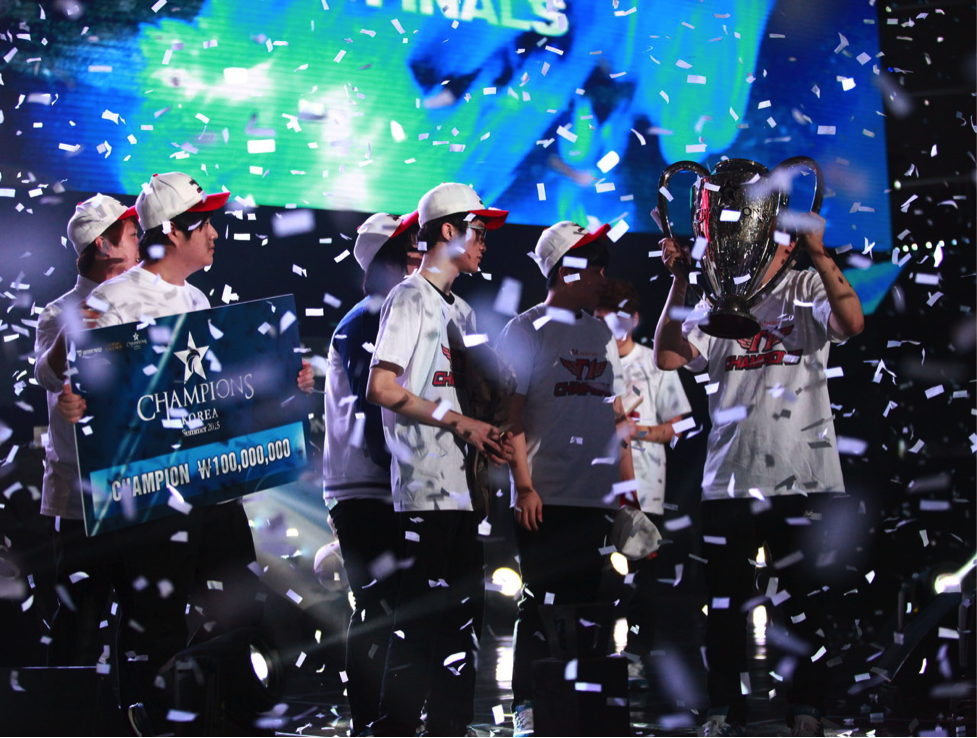

Image coutesy Thescoreesports.com
In esports, it is important to be able to work as a team. Regardless of what game you are playing, you need to be able to work effectively together, provide advice and constructive criticism, and adjust your playstyle in response to that criticism. This team-player mindset can go a long way in making your team play like a well-oiled machine. A team that doesn’t work well together will almost always be outperformed. In a game like League of Legends, your team is your single most important asset. A team that plays well together will be able to make decisions quickly, and collectively think with a more level head.
From an inexperienced perspective, some might think that the best teams are the best because they have the most skilled players, and that if a player is good enough, they can be a game changer. This is only marginally true. What really makes a good team is knowing that you are not alone, and utilizing your teammates’ skill as well as your own. A strong team of good players will outplay a superstar player that doesn’t work well with others nine times out of ten. So what exactly makes a good team? To answer that, we’ll need to take a look at the inner workings of some of the top esports teams today.
“When you’re winning all the time, you’re gonna be happy,” says Xspecial, of TSM Snapdragon. “When you start losing, that’s when… that’s when teams start to drift apart.” It is very important for teams to be able to work through the stress and disappointment of losing, and continue to work towards their common goal. Any in-fighting will not only distract team members from the game, but make them less inclined to play well together, rely on each other, and have each other’s back. Team members of many successful teams have said that being able to maturely settle arguments with their fellow players is key to having a team work well together.
Teams that don’t play well with others don’t play well at all.
Burgess says, “The core of the team usually consists of two or three players who influence how the team functions in game - and typically dictate the team's playstyle.” This essentially means that some will lead, and the others will follow. Having certain members leading is important, because it gives the team a consistent playstyle and makes it reliable without having too many cooks in the kitchen. It also splits the team up into two operating units. The core will act as one unit, and the outer layers will operate somewhat independently. This League-specific advice rings true for almost any team.
The outer layers then are assigned roles that depend on the core. These outer layers will complement the core of the team, while covering any bases that the core can’t.
The third part is extremely important. Determining who will lead the team and call the shots is what makes a team operate differently from a random group of people trying to accomplish the same thing. Knowing who calls the shots lets players know who to look to for direction whenever they’re in doubt. It also gives the shotcaller the confidence and discipline that comes with knowing their team is relying on them. Without a designated leader, a team can quickly spiral into unorganized chaos, with multiple members trying to call the shots, often disagreeing and struggling for leadership.
Even if you only loosely follow these guidelines, your team will be much closer to operating as one united force. It is partially on the players to meet these guidelines, but it is also the responsibility of the team’s management to be able to speak and act with authority to make sure these needs are met. And, as with most things, your team build will become improved and perfected with much trial and error. As long as you see the true value in what it means to actually play as a team, and work toward it every day, over time your team will become one solid machine with multiple moving parts.